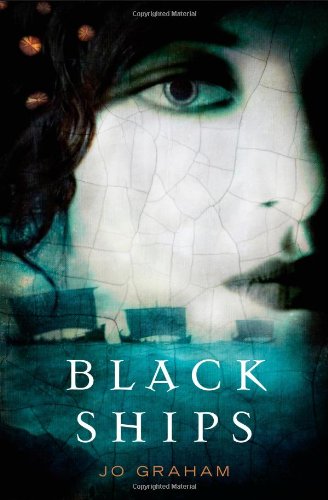Black Ships
With his epic poem The Aeneid, Virgil established a mythological link between ancient Greece and Rome through Aeneas, a prince who fled Troy aboard ship with his fellow exiles, settled in Italy, and founded a new kingdom. Graham retells this ages-old story from the viewpoint of Gull, an oracle who accompanies Aeneas on his nautical wanderings throughout the lands of the Mediterranean.
As the crippled, illegitimate daughter of a slave brought forcibly to the Achaian city of Pylos after Wilusa (Troy) fell, Gull faces an unknown future until Pythia, speaker for the Lady of the Dead, takes her as her acolyte. At age seventeen, Gull becomes Pythia herself, in turn. When nine black ships carrying Prince Neas and his followers land on Pylos, they gather up the women of Wilusa taken prisoner years before and sail off to parts unknown, with Gull’s prescient abilities as their guide. They voyage from Byblos to Egypt to Mount Vesuvius, encountering many dangers—including storms at sea, vengeful Achaians, and a self-absorbed Egyptian princess. Gull must chart her own path, as a young woman hungry for knowledge, romance, and life’s plentiful offerings yet who is obliged to serve Death, and to speak with Her voice.
Graham excels at describing the landscapes of the ancient world and illuminating her characters’ spiritual lives; these passages ring with a pure, otherworldly clarity that evokes a true sense of wonder. Yet she is nearly equally skilled at choreographing action scenes, and the combination of both makes Black Ships a rare treat. Comparisons to The Mists of Avalon are somewhat apt, in that the novel revisits a familiar tale from a feminine perspective, yet it avoids Bradley’s gender-divisive approach. Despite a few modern phrasings, this is a welcome debut, well grounded in archaeological knowledge.










